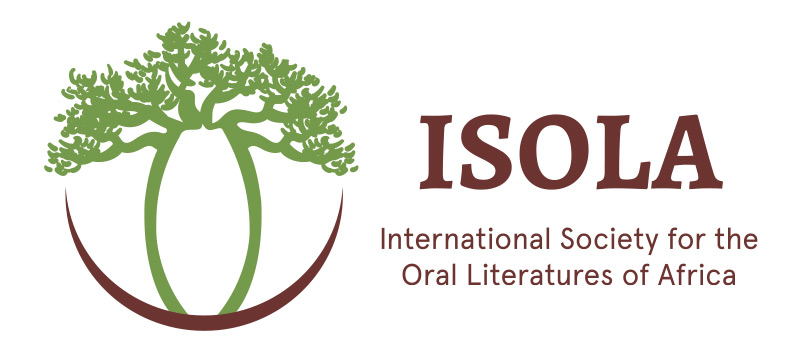
|
The 15th ISOLA Conference will take place from 9th to 12th July 2025 at University of Abuja, Abuja, Nigeria. Registration is OPEN. Program available here.
Call for papers Revival and sustainability of oral texts, artefacts and heritage sites
Technological innovation is an asset for research, understanding, and advancement of African oral traditions and other forms of epistemic engagements. The rich tapestry of African oral literary field includes oral traditions and indigenous knowledge system, festivals, rituals, beliefs, norms, songs, music, dance, skills and crafts, religion, spirituality, philosophies and science. The importance of indigenous knowledge cannot be gainsaid in a contemporary world that is inclined to look back for answers to current crises in various facets of everyday life, from medicine to politics and the climate.
To save our indigenous knowledge system, individuals and corporate stakeholders have been making conscious efforts to arrest the attrition rate of oral sources of Africa, mainly through recording and archiving. The troubling words of the great Malian griot, Amadou Hampậté Bậ’s at UNESCO in 1960 that, “In Africa, when an old man dies, it’s a library burning,” have continued to impel the written documentation and digital recording of oral texts. However, centuries of material cannot be harvested in a few decades. Existing and emerging challenges include death of the indigenous custodians; neglect of the subject in the context of the onslaught of STEM; the politics of research funding and redefinitions of the field need to be addressed for the access to immense treasures of African indigenous knowledges that have been archived in artefacts, plants, animals, natural landscapes and architectural entities supported and preserved in creative oral encyclopedias.
Against this backdrop, the theme of the 2025 conference of International Society for the Oral Literatures of Africa (ISOLA) is the “Revival and sustainability of oral texts, artefacts and heritage sites.” This theme is timely for not only examining the threat of extinction faced by oral arts that support knowledge of the world, but also for exploiting the opportunities afforded by evolutions in technology towards the preservation and continuities of these epistemes.
The conference is expected to bring together scholars of oral literature and performance; cultural studies and media studies; sociology and anthropology, as well as materials culture, museums and heritage studies, to deliberate on the theme and related issues. Abstracts of individual papers and panels are invited on, but not limited to, the following sub-themes:
Instructions ISOLA is committed to the promotion of academic excellence. Abstracts of papers and panels should have a well-defined research topic and objective, show familiarity with current research areas, address the theme of the conference and focus on Africa or the African Diaspora. The working languages are English and French.
Abstracts (300-500 words) including the author's name, institution, email address and a brief biography, should be uploaded in both languages on the conference website: https://isola-15.sciencesconf.org/submission/submit?forward-action=submit&forward-controller=submission&lang=en
Individuals who still have any difficulty uploading the abstract may wish to use the following email address alternatively- isola.conference2025@uniabuja.edu.ng
Deadline for abstract submission: October 21st 2024 / NEW December 23rd 2024. Notifications of acceptance will be sent from January 2025. |

